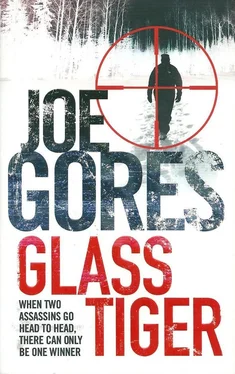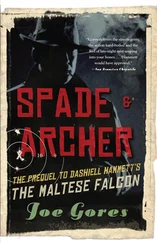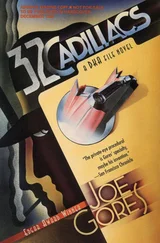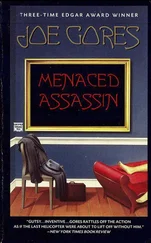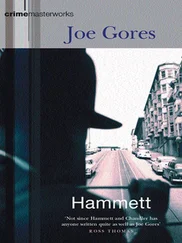For Dori
The Dream Dreaming Me
Now and Forever
Here and Hereafter
Separation from its fellows appears to increase both cunning and ferocity. These solitary beasts, exasperated by chronic pain or widowhood, are occasionally found among all the larger carnivores.
Geoffrey Household
Rogue Male
The ferocity is gone. I don’t have it in me any more. I can’t even kill the bugs in my house.
‘Iron Mike’ Tyson, ex prize-fighter
If men had wings and bore black feathers, few of them would be clever enough to be crows.
Henry Ward Beecher
NEW YEAR’S EVE
Tsavo Game Park, Kenya
The black rhino stopped browsing to throw back its massive head and snort. His scimitar horns, the front one five feet long, gleamed like dull carbon under the gibbous moon. He was big as a boulder, a ton-and-a-half of living fossil plunked down on the wet-season savanna. Since the devastating horn and ivory raids by Somali shifta poachers in the 1970s and ’80s, only this lone bull survived outside the game park’s pitifully small rhino recovery reserve.
The compact man three feet from the rhino’s left flank froze with one foot raised above the calf-high grass, one arm still outstretched. He was downwind, but his scent must have been carried by a vagrant night breeze. Rhinos’ keen sense of smell, coupled with dim eyesight, made them unpredictable and even deadly if you couldn’t get out of their way in time. The rhino snorted again, satisfied that all was well, and returned to stripping tender twigs and new leaves off the acacia bush with his delicate, beak-like mouth.
The man lowered his foot, put weight on it gradually so no twig would crackle. He laid his palm on the rhino’s rounded back as gently as a falling leaf. It was his fifth New Year’s Eve to do this, but he was always surprised by the softness and warmth of the hide. Explorers’ tales from previous centuries made rhinos out to be great armored beasts with skin three inches thick, but they were surprisingly vulnerable to ticks and black flies and disease.
The rhino stopped munching to begin moving his back slightly under the human hand. After five minutes, the man moved silently away, out of the brush and out of danger and into the open veldt.
As he did each year he whispered, ‘Happy New Year, Bwana Kifaru ’ — Swahili for Big Boss Rhinocerous. Getting away unscathed from petting Bwana Kifaru was his New Year’s Eve ritual. Only Morengaru, the other guard at Sikuzuri Safari Camp, understood it as a stab at needed danger. The man started the four-mile trot back to the Galana River’s south bank. Almost forty, five-ten and built like an Olympic gymnast, hard of body, with coal-black hair and bitter-chocolate eyes, he was the only white camp guard in the country. And since big game hunting had been banned in Kenya, the closest to a white hunter the wealthy guests at the luxury resort would ever get. So he was obliged to attend Sikuzuri’s official New Year’s Eve party, even though he only wanted to return to his thatch-roof banda and reread one of the halfdozen paperback mysteries left behind by departing guests.
When he got to the ford across the Galana, he stopped abruptly, remembering the New Year’s Eve seven years ago, after which everything had gone dead in him. Tonight he felt like a bear coming out of hibernation. What was going on? As he crossed the Galana, he could feel numbness disappearing, feel a return of something like that fierce adrenaline rush he once had lived for as the junkie lives for the needle.
Not killing. No, never again killing. A quest. A vital, necessary trackdown of... what? Or of whom? For whom?
Minnetonka, Minnesota
Sleeves rolled up and tie pulled awry, the former governor of Minnesota stood at his thermopaned study window, drink in hand, looking out over frozen Lake Minnetonka with glacial blue eyes. At fifty-five, he had a strong jaw and good cheekbones and the thick, slightly unruly hair Jack Kennedy had made de rigueur for serious national contenders.
‘Thinking of how far you’ve come, darling?’ He turned. After their return from the big New Year’s Eve blast at Olaf Gavle’s multi-million-dollar house, Edith had gone up to bed. Yet here she was back down again, wearing her shapeless flannel nightgown and green chenille robe.
‘Thinking of how far I have to go. Can’t sleep?’
‘I get lonely when you’re not next to me.’
Edith was forty-nine, the only wife he’d ever had, short, slightly plump, with the bright inquisitive eyes of a chickadee. He had been unfaithful to her with only one woman, who was now gone, and had never been able to decide whether Edith had known or not.
Looking down, he told her, not for the first time, ‘If chickadees weighed a pound apiece, they’d rule the world.’ She bumped him with a well-upholstered hip. He added, ‘Twenty days, love. How often have I doubted this time would ever come?’
‘I never doubted,’ she said, suddenly fierce. ‘Never for an instant. You’re a man of destiny. Nothing can stop you now.’
The Great North Woods
Outside, it was thirty-six degrees below zero. Winter’s icy hand gripped this northern land by the balls. Inside, the 56-year-old man started up from his sleep with a muffled ‘Whompf!’ The embers of the hearth fire dug harsh shadows into his lean face, seamed and nut-brown from exposure to a lifetime of bad weather.
He loved it all. Or once had. Now, he leaned against the wall behind his bunk in the one-room log cabin, deep-set hazel eyes staring through the moonlight from the window and into the familiar, already fading image:
Nisa, pounded back up against the bulkhead beside the houseboat’s couch by the heavy .357 Magnum slugs...
Two months ago. He had dropped the gun like it was red hot. He had been shot the year before, turning it all sour. And tonight, along with Nisa, was an image from that earlier night:
Two yards away was a gaunt timberwolf, tongue lolling, ears pricked. Real? Or hallucination? The man had been shot three times from ambush and had to crawl a thousand feet to the cabin and a telephone before he went into shock.
His racing heart began to slow. The nightsweat of terror began drying on his face. Anger replaced it. Once he had been a trapper and a hunter: now he ate out of cans. Now he had a limp and a damaged lung and missing fingers, and couldn’t even bring himself to bow-hunt whitetails for food.
And now, a visitation of the Nisa nightmare again, a month since the last one. His nightmares after his wife Terry’s death, of her fleeing him, had prevented him from tracking down the drunken fool who had killed her. The Nisa dreams were different, guilt-filled — what had he done? With tonight, the wolf and a strange, palette-knife swirl of other images. Some stalking beast, dark and lithe and lean and tireless. Stalking him...
His bitterness became rage: having been made prey, he could no longer be predator. But because of what he had done, the nightmares of his daughter’s death left him no choice. He had to atone, even while telling himself he never really would.
Never could. But now...
The gray wolf was easy. Himself, being urged to hunt again. But who — or what — would be hunting him? Easy surface analysis: if he hunted, he would be hunted by his own guilt.
Deeper analysis: literally hunted?
‘Are you good enough?’ he demanded of the faded image.
Unfairly, he would have to call Janet after convincing himself he would never put her in danger again. Ask her to meet him somewhere, tell her he needed her help, remind her that two months ago she had been urging him to be a predator...
Читать дальше
